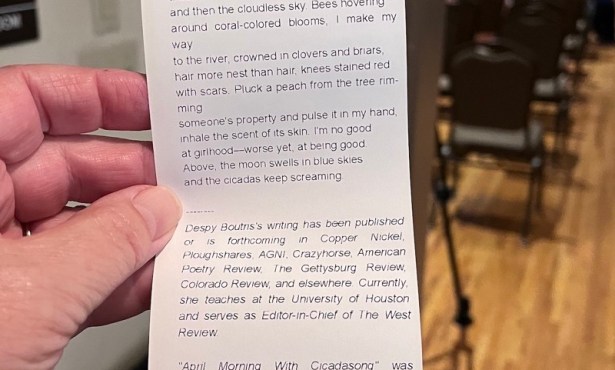When Travel Informs the Page
Talking About Virginia Dale's Collection Touch Me, Touch Me Not
Unlike most Americans, Virginia Dale, author of the new story collection Touch Me, Touch Me Not, has traveled and lived abroad in several different countries, including Spain, Morocco, and France. Her experience abroad has led to the inspiration behind her latest book, which consists of three long short stories and a satirical novella. Dale’s worldliness and passion for culture and history will take the reader on an adventure filled with drama, moral introspection, and a reevaluation of American culture versus other countries’ cultures.
Also inspired by true life events, the stories lay bare the delusions many of us live with, such as seeking escape from an unhappy marriage through infidelity or convincing ourselves that we are different from our parents when, in actuality, the apple doesn’t fall far from the tree. Dale’s travels and experiences, along with unexpected plot twists and turns, make Touch Me, Touch Me Not a truly unique novel.

I had the pleasure of interviewing, Virginia Dale, whose zest for writing and love of different countries was a great delight.
Where did the inspiration for each story come from?
The title story was written many years ago to preserve one of the most treasured moments of my life. I wanted to be touched by someone who wanted to touch me, but couldn’t since I was married to his second cousin. Hence, the title Touch Me, Touch Me Not.
I wrote “Ladies Used to Wear Hats” to lay bare the illusion many of us live with: that our lives will be different from our parents’, that we won’t commit their mistakes and yet we do without admitting to ourselves that we might resemble our parents in the least. These two stories are actually true to life except for the violent endings.
“The Bushy Twins” was inspired by George W. Bush’s inhuman treatment of Cindy Sheehan, who begged her son not to go to war in Iraq, only to have him go and get killed in the first five days. She staked out the White House and Crawford, Texas for months with other mothers whose children had been killed in this needless war, but Bush pretended these women didn’t exist. He never apologized for the deaths of their sons/daughters.
How has your traveling abroad influenced the writing process for this book?
Without my travel experiences, I would have remained a fairly typical American. Traveling, living in Madrid, Spain and attending the University of Madrid’s Foreigner’s Program opened a new world full of warm friendships, and eventually a marriage to a French national born in Algiers, Algeria under the French Protectorate.
I was determined to learn the Spanish language, which I did, and make as many friends from Spain and other countries as possible. I met people who had traveled, learned other languages, laughed at hypocrisy, and loved their lives and each other. It was wonderful because my family was not broad-minded.
Why did you choose France for the first story, “Touch Me, Touch Me Not?”
Sebastian lived in Paris; we had fallen in love when he spent a month at our beach house in Alicante, Spain, two years prior.
I recounted the intense attraction I felt for my then-husband’s second cousin and our mutual frustration at being unable to convey our feelings in poetic, but not overt sexual ways. This is what made our longing for each other so profound, his playing Dylan’s’ “Lay Lady Lay,” playing his guitar for me in his bedroom at his parents’ apartment in Paris, simply staring at one another without speaking for hours was much more exciting than sex itself.
How did you choose the names for your characters in “The Bushy Twins Go to War and Find Rumi?” Are they satirical references to individuals in particular?
I chose names that I hoped would make people laugh. Slick Chainy refers to Dick Cheney’s (and George W. Bush’s) slick salesmanship of a disastrous war with a country that had done us no harm (nor had Afghanistan) for no reason other than they thought it would be quick and easy like George H. W. Bush’s Desert Storm. I resented their stupidity and the untold damage done to Iraq and lives lost, both American and Iraqi. Each name refers to a specific historical personage, such as Gaddam Hasan sounds humorous and is easily recognizable as Saddam Hussein.
Why is the Middle East important to these stories?
My personal thought on the Middle East is that each country is unique and should be respected for its philosophy and the history that has formed it. Without understanding a country’s history, literature and religion, how can you begin to understand its people?
I developed a love and respect for the Moroccan people while I lived there. I absorbed much of the Muslim culture when I lived in the capital of Morocco for five years. These people lived close to nature, worked hard for the basics of survival, and were capable of profound passion and wisdom. I felt deeply attached to them.
4•1•1
Virginia Dale’s Touch Me, Touch Me Not is available for purchase on the Internet for $1.99.



